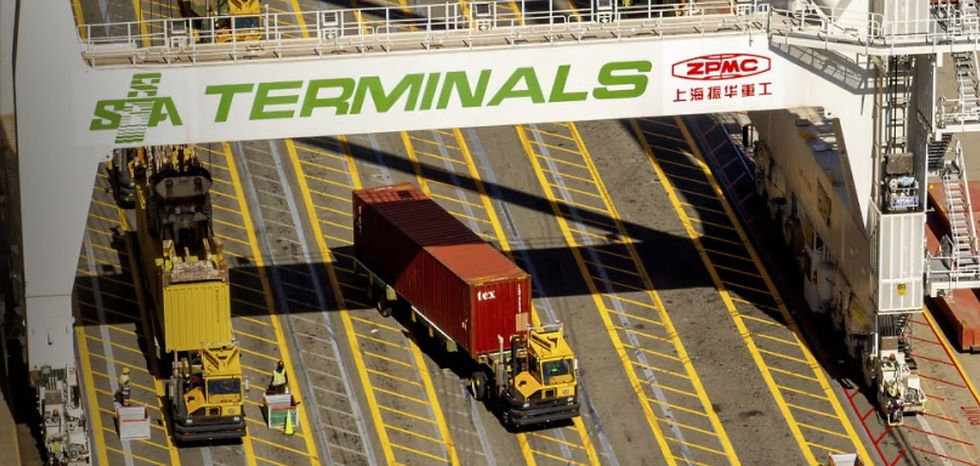Higher US tariffs take effect on dozens of economies
- Balitang Marino

- 3 days ago
- 2 min read

WASHINGTON, August 8 ------ Higher US tariffs came into effect for dozens of economies, drastically raising the stakes in President Donald Trump's wide-ranging efforts to reshape global trade. As an executive order signed last week by Trump took effect, US duties rose from 10 per cent to levels between 15 per cent and 41 per cent for a list of trading partners.
Many products from economies like the European Union, Japan, and South Korea now face a 15-per-cent tariff, even with deals struck with Washington to avert steeper threatened levies. But others like India face a 25-per-cent duty - to be doubled in three weeks - while Syria, Myanmar, and Laos face staggering levels at either 40 per cent or 41 per cent. Taking to his Truth Social platform just after midnight, Trump posted: "IT'S MIDNIGHT!!! BILLIONS OF DOLLARS IN TARIFFS ARE NOW FLOWING INTO THE UNITED STATES OF AMERICA!"
The latest tariff wave of "reciprocal" duties, aimed at addressing trade practices Washington deems unfair, broadens the measures Trump has imposed since returning to the presidency. But these higher tariffs do not apply to sector-specific imports that are separately targeted, such as steel, autos, pharmaceuticals, and chips. Trump said Wednesday he planned a 100-per cent tariff on semiconductors - though Taipei said chipmaking giant TSMC would be exempt as it has US factories.
Even so, companies and industry groups warn that the new levies will severely hurt smaller American businesses. Economists caution that they could fuel inflation and weigh on growth in the long run. While some experts argue that the effects on prices will be one-off, others believe the jury is still out. With the dust settling on countries' tariff levels, at least for now, Georgetown University professor Marc Busch expects US businesses to pass along more of the bill to consumers.
An earlier 90-day pause in these higher "reciprocal" tariffs gave importers time to stock up, he said. But although the wait-and-see strategy led businesses to absorb more of the tariff burden initially, inventories are depleting, and it is unlikely they will do this indefinitely, he told AFP. "With back-to-school shopping just weeks away, this will matter politically," said Busch, an international trade policy expert.
The tariff order taking effect on Thursday also leaves lingering questions for partners that have negotiated deals with Trump recently. Tokyo and Washington, for example, appear at odds over key details of their tariffs pact, such as when lower levies on Japanese cars will take place. Washington has yet to provide a date for reduced auto tariffs to take effect for Japan, the EU, and South Korea. Generally, US auto imports now face a 25-per-cent duty under a sector-specific order.
A White House official told AFP that Japan's 15-per-cent tariff stacks top of existing duties, despite Tokyo's expectations of some concessions. Meanwhile, the EU continues to seek a carveout from tariffs for its key wine industry. In a recent industry letter addressed to Trump, the US Wine Trade Alliance and others urged the sector's exclusion from tariffs, saying: "Wine sales account for up to 60 per cent of gross margins of full-service restaurants."
Source: channelnewsasia.com




Comments